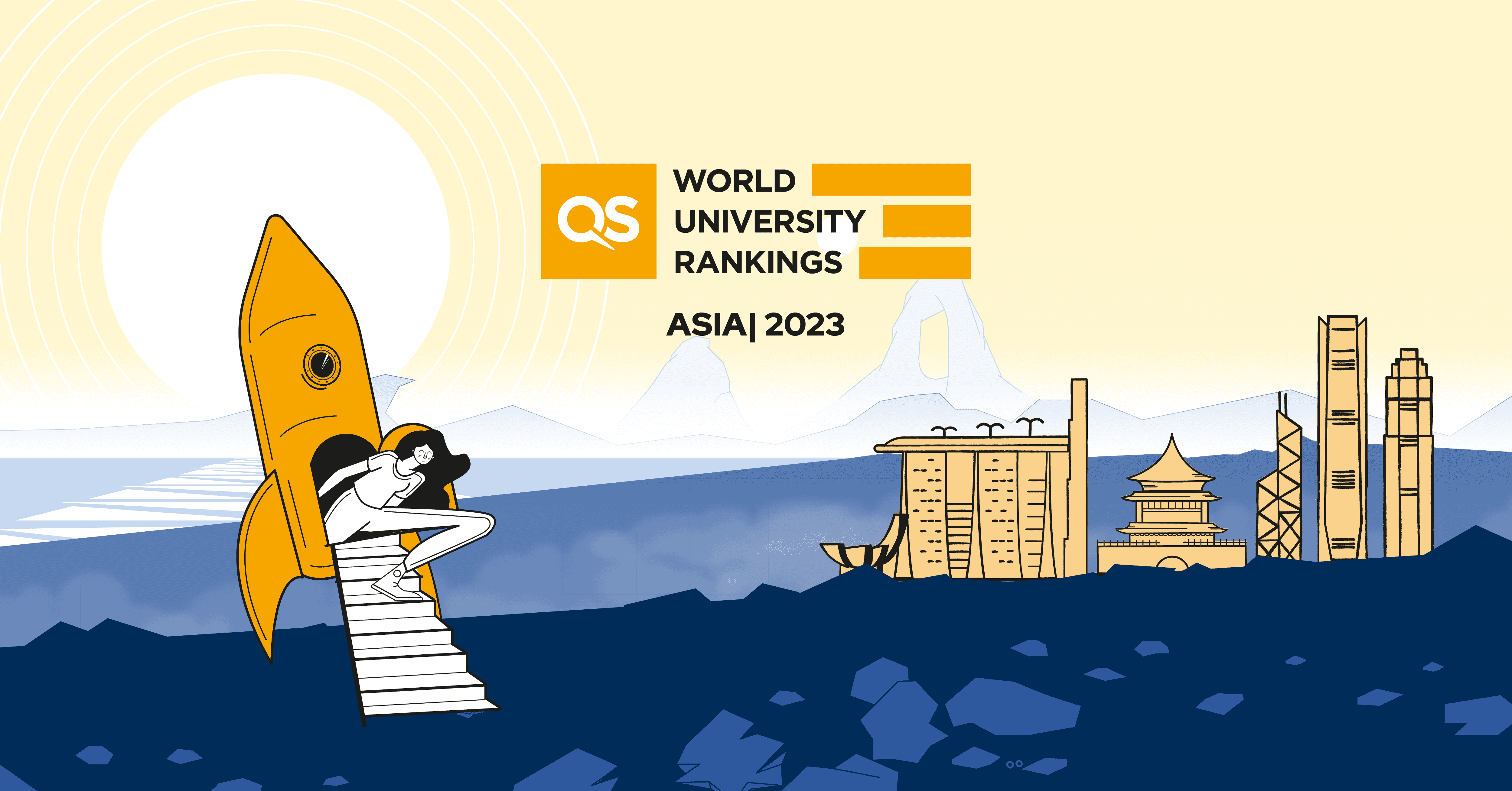
The QS World University Rankings: Asia 2023 are now live!
The 15th edition of the QS World University Rankings: Asia features 757 institutions – up from 687 last year and making it our biggest rankings for this region yet. The major locations represented include China Mainland (128 institutions), India (118), Japan (106) and South Korea (88), accounting for more than a half of all ranked institutions.
Who are the top 10 institutions in the QS World University Rankings: Asia 2023?
1. Peking University
2. National University of Singapore (NUS)
3. Tsinghua University
4. The University of Hong Kong
5. Nanyang Technological University, Singapore (NTU)
= 6. Fudan University
= 6. Zhejiang University
8. KAIST (Korea Advanced Institute of Science and Technology)
9. Universiti Malaya (UM)
10. Shanghai Jiao Tong University
Key takeaways from the QS World University Rankings: Asia 2023
With an improvement on the previous year, Peking University sits in first place with a flawless score of 100. After standing in first place for four consecutive years, the National University of Singapore (NUS) are now ranked second with a score of 97.4. Both institutions received perfect scores of 100 for ‘academic reputation’.
The University of Hong Kong and Nanyang Technological University, Singapore (NTU), who shared third place last year, are now ranked fourth and fifth respectively. This year, Tsinghua University sits in third position with a score of 97.3 – having risen from fifth place. The University of Hong Kong achieved perfect scores for three performance indicators: ‘international students’, ‘inbound exchange’ and ‘outbound exchange’, while Tsinghua University were awarded the same perfect score for ‘academic reputation’.
Fudan University and Zhejiang University now share sixth place with equivalent overall scores of 96.3, with both institutions performing particularly well in ‘international faculty’ with scores of 99.9 and 100 respectively.
Many institutions share the achievement of receiving perfect scores in a range of categories including ‘international students’ (13 institutions), ‘outbound exchange’ (19), ‘inbound exchange’ (21) and ‘staff with PhD’ (23).
Universiti Malaya (UM) loses eighth position to KAIST (Korea Advanced Institute of Science and Technology) – a university who has improved greatly since last year having moved six places up and being the only new South Korean university in the top 10. Universiti Malaya (UM) is now in ninth position with 92.6. Lastly, Shanghai Jiao Tong University holds the 10th position for another year with a score of 92.2.
With 11 Indian institutions making it to the top 100 global list, Southern Asia holds 27% of the spots in this year’s ranking. Eastern Asia is the most represented subregion representing 50% of all ranked institutions: 17 institutions ranking in the top 20 and with the majority of institutions located in China (Mainland) ranking in the top 10.



